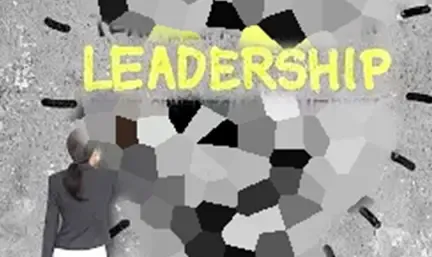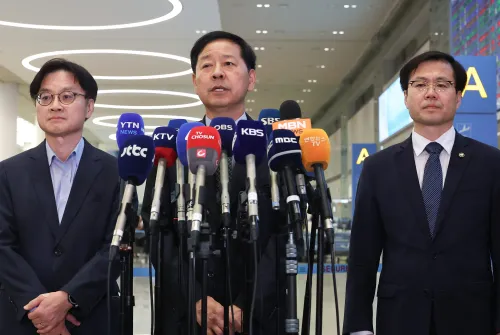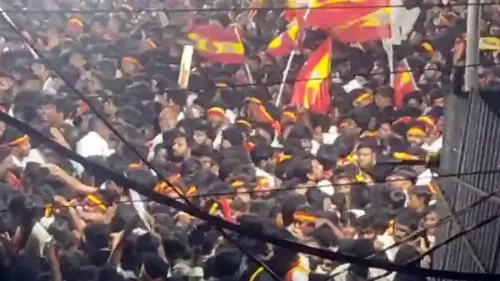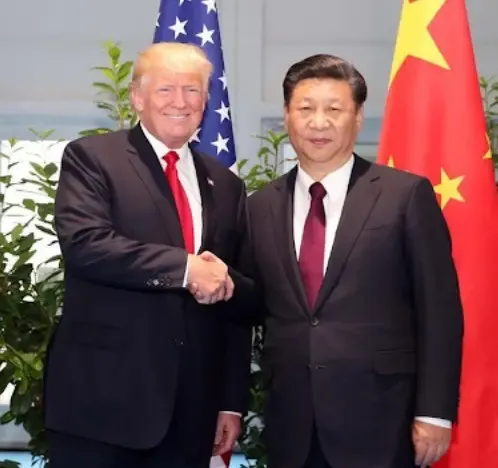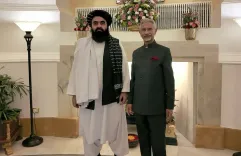CM Stalin: Tamil Nadu Will Accept Hindi If Not Imposed

Synopsis
Key Takeaways
- Self-respect is vital for Tamils.
- DMK opposes Hindi imposition, not the language.
- Historical anti-Hindi agitations date back to 1937-39.
- Two-language policy has benefitted Tamil Nadu.
- CM Stalin committed to safeguarding Tamil.
Chennai, Feb 26 (NationPress) The Chief Minister of Tamil Nadu, M.K. Stalin, on Wednesday reaffirmed that self-respect is a fundamental aspect of the Tamil identity and stressed that the Dravida Munnetra Kazhagam (DMK) does not oppose Hindi unless it is forced upon the residents of the state.
In a message directed at DMK supporters, CM Stalin made it clear that the party’s resistance to Hindi arises from its persistent imposition on Tamil Nadu.
He emphasized that the Dravidian movement does not possess any hostility towards any language.
“Tamil Nadu has never considered any language as an adversary, nor has it sought to eradicate one. Nevertheless, it has consistently opposed any language that seeks to dominate it,” he stated.
The Chief Minister also honored the historical figures of the Dravidian movement, including Pitti Theagarayar, who respected Sanskrit but never compromised the integrity of Tamil.
In response to the ongoing debate regarding Hindi signage in Tamil Nadu, CM Stalin remarked, “We will not object if you refrain from imposing. We will not deface Hindi terms in Tamil Nadu. Self-respect is the distinctive identity of Tamils, and we will not permit anyone to undermine it.”
He also pointed out the state’s extensive history of anti-Hindi protests, which dates back to 1937-39, where notable figures like social reformer E.V. Ramasamy ‘Periyar’ played a vital role.
In reaction to comments made by a BJP leader regarding the defacement of Hindi boards at railway stations being an inconvenience for North Indian travelers, CM Stalin posed a significant question. He asked whether railway stations in Uttar Pradesh display signs in Tamil and other South Indian languages for attendees of events such as the Kumbh Mela or the Kashi Sangamam.
He also queried whether announcements at railway stations in Uttar Pradesh are made in languages spoken in South India.
CM Stalin reminded party members that numerous leaders from the Justice Party — regarded as the founding body of the Dravidian movement — and Tamil scholars had actively protested against the imposition of Hindi during the tenure of C. Rajagopalachari’s government from 1937 to 1939.
He further accused the BJP-led Union government of attempting to impose Hindi and Sanskrit under the pretense of the three-language formula.
The CM asserted that Tamil Nadu’s unwavering two-language policy (Tamil and English) has significantly contributed to the state’s advancements in school education, higher education, skill development, and job opportunities.
CM Stalin promised that his administration would take all necessary measures to safeguard Tamil and resist any attempts to impose Hindi or other languages on the state.

